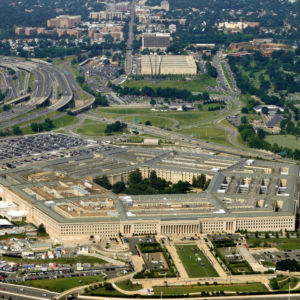Last month, President Trump proposed a record $4.75 trillion budget, which includes significant increases in military spending. But it’s hard to argue the Pentagon needs more money — military leaders aren’t being responsible with the tax dollars they already have.
The Defense Department has not done nearly enough to eliminate waste, fraud and frivolous spending of taxpayers’ hard-earned money. And it turns out interference by foreign governments in U.S. military contracting — specifically by Kuwait, America’s longtime ally — continues driving costs to taxpayers even higher.
The Trump administration must put an end to this interference, demand accountability from the Kuwaiti officials responsible and stop wasting Americans’ money.
In the 28 years since the U.S. military pushed Saddam Hussein’s army back into Iraq, Kuwait has agreed to host thousands of active duty U.S. troops and invested billions into U.S. arms sales. In turn, the Pentagon has hired Kuwaiti companies to perform certain local services like housing and transporting American military equipment to and from the country’s main harbor, the Shuwaikh Port.
Typically, a competitive bidding process between multiple firms helps lower contract costs for the Pentagon. However, one Kuwaiti official recently put an end to that cost-saving exercise.Sheikh Yousef Al-Shaba — a member of the Kuwaiti royal family — manages the Shuwaikh Port and has been using his position to influence contracting. Last year, he unilaterally decided to bar one of the Pentagon’s longtime contractors, the Kuwait and Gulf Link Transport Company (KGL), from operating at the port.
At the time, Kuwaiti courts determined the shady maneuver exceeded Al-Shaba’s authority. As a result, the U.S. Army was forced to terminate a $26 million contract with KGL and sign a more expensive deal with a competitor, costing U.S. taxpayers millions more and putting critical military operations at risk. Recently the Pentagon revealed that, as a result of this interference, the Defense Department has been forced to award expensive sole-source contracts for work being done at the port.
Last year, the Pentagon used market research to determine it could get a better deal on a two-year-old contract with a Kuwaiti company, Cargo Transportation System Company, to load and unload ships for U.S. troops at the port. Cargo, founded in 1952, is one of Kuwait’s oldest private companies and in the good graces of Al-Shaba and other members of the Kuwaiti royal family.
In May 2018, the Defense Department issued a request for proposals for the contract, but Al-Shaba’s apparent efforts to limit competition to only his favored contractors resulted in a protest that made it impossible for the Pentagon to receive competitive bids.
As a result, the Defense Department announced on February 26 that it was forced to award another sole-source a six-month contract to Cargo, this one worth $10 million of Americans’ money.
According to one person familiar with military contracts and purchasing who wished to remain anonymous, if the operator had been selected through a competitive bid, it would have likely cost taxpayers less than one-quarter of that amount. In other words, Al-Shaba’s effort to reduce the Defense Department’s choice of contractors cost U.S. taxpayers at least $7.5 million.
Regrettably, this is not an isolated incident. This marks the third time in two years that the Pentagon has been forced to award a sole-source contract for these same types of services at the Kuwaiti ports.
The problem could also get worse. If the director of the port continues his favoritism by blacklisting of KGL and other more cost-effective service providers, the Pentagon may have to terminate a $1.3 billion contract for food delivery services, which would cost the United States at least an additional $193 million.
Fortunately, the Trump administration has an opportunity to set things straight. Secretary of State Mike Pompeo was just in Kuwait to discuss a number of partnerships on trade, investment and regional security. He should make cracking down on interference in the ports — and any behavior that impacts U.S. taxpayers — a requirement for U.S. participation in any such agreements.
Meanwhile, Trump is busy working to secure support for the 2020 budget. By trimming waste like the military contracting shenanigans taking place in Kuwait, he can take meaningful steps to get unnecessary military spending in check.

